The event is two weeks away and almost all the tickets have been sold! We would like to thank you all very much for your generous support. Those of you who haven’t bought tickets to the event of the year, there are still a few left, so get in there quick before they’re all gone!
As you know, each ticket holder will receive a unique, handmade booklet containing drawings by Malaysian children and gorgeous original photography by Johnny McGeorge aimed at capturing the Malaysian spirit. Here’s a sneak preview!
In the lead in our Facebook contest is Azmyl Yunor! Azmyl has many questions about the efficiency (or the lack of it) of our public transport system.
“Aren’t you tired of waiting for over 30 minutes for commuter trains or buses to arrive at the station? Aren’t you bothered being cramped and squashed with hundreds other passengers early in the morning as you try to get to work? Aren’t you worried about your safety and that of other passengers due to overcapacity of passengers in the packed trains or buses?”
Every year, Malaysians are treated with the same promises of improvement to our public transport system. Have we seen any of those promises being materialised? How exactly do we best solve the problem with our public transport system?
Fahmi loves having the freedom to access what he likes on the internet when he likes it but he is also worried about the misuse some irresponsible people have used the internet for.
While the government has promised that there will be no internet censorhip, the recent block by the Malaysian Communications and Multimedia Commission on ten websites have sparked outrage among Malaysian internet users. Is the reason of combating piracy justifiable in curbing freedom of access to the internet? What will happen if the authority decides to block blogs, Facebook, Twitter and other forms of social media under the name of national security? How do we find middle ground between freedom of access and curtailing the misuse and abuse of internet?
Nadia believes that the Orang Asli and Orang Asal should enjoy the comfort that we urban Malaysians are enjoying at the moment.
As many urban Malaysians continue to enjoy modern developments and opportunities, the Orang Asli and Orang Asal continue to be sidelined and marginalised. As we continue to strive for Vision 2020, Orang Asli and Orang Asal continue to live in their state of poverty In which they have very little access to education and healthcare. Reports are rife of unjust and wrongful acquisition of their lands for urbanisation and this poses the risk of destroying their source of economic activities. Are we comfortable knowing that the development we enjoy today is done at the expense of a very under-represented group of our fellow Malaysians?
Seez believes that the highest law of any country should protect the rights and welfare of each and every citizen in the country. The same applies to our Federal Constitution.
Our Federal Constitution states that “…there shall be no discrimination against citizens on the ground only of religion, race, descent, gender or place of birth in any law…”. In 2001, an amendment was made to Article 8 (2) of the Federal Constitution to prohibit gender discrimination through the Constitution although this has yet to be encapsulated in any legislation. Malaysia’s only other anti-discrimination law is the Persons With Disabilities Act 2008 although questions continue to arise of its many omissions and gaps.
Isn’t it worrying that the citizens of Malaysia are protected from discrimination only from very limited fronts? How can the United Kingdom have the Equality Act 2010 that protects its citizen from eight protected characteristics including age, disability, gender reassignment, marriage and civil partnership, race, religion or belief, sex, and sexual orientation but not Malaysia? Is it not about time for Malaysia to recognise the rights of the lesbian, gay, bisexual and transgender community as well?
Deepa believes there are still more to be done to protect the rights and welfare of refugees and asylum seekers in the country.
There are nearly 100,000 UNHCR-registered refugees and asylum seekers in Malaysia, with an estimated tens of thousands more who are unregistered. Based on the Immigration Act 1959/1963, refugees are no different in law than illegal migrants, resulting in no formal access to healthcare, education and employment. Unsanitary conditions in detention centres lead to serious illnesses, with sometimes fatal consequences. Cases of abuse and rape by detention staff and other detainees in such centres are rife. How can the government reconcile this complete lack of protection for the increasingly large group of women and child refugees and asylum-seekers, with its obligations under the Convention on the Elimination of All Forms of Discrimination against Women (CEDAW) and Convention on the Rights of the Child (CRC)? With the recent signing of the refugee swap agreement with the Australian government, how can our government ensure equality of treatment between the refugees sent to Malaysia under the deal and the remainder of the 100,000-odd refugees in the country? Isn’t it time the government owns up to its share of responsibility in this humanitarian crisis by providing in the very least the minimum legal protection to our fellow human beings?
Art does not believe in the idea of detention without a fair trial.
The continuous use of the Internal Security Act 1960 and the Emergency Ordinance 1969 reflects an outright disregard to each and every Malaysian’s right to a proper full and fair trial under the law. These preventive detention legislations have, over the years, been used as tools for the police to detain those they believe to be a threat to the country’s security and public order without providing any evidence to support their allegations. The recent detention of six PSM leaders is a case in point. The ISA was initially implemented solely to be used against the communist and while our first prime minister, Tunku Abdul Rahman, pledged that it would never be used “to stifle legitimate opposition and silence lawful dissent”, recent use of the act has proven otherwise. Do we still need these archaic laws or should we abolish them in the name of democratic progress of our country?
Joyce champions the need to ensure that the product of our education system has a very good grasp in English to compete in the global playing field.
How will the government improve our graduates and students’ fluency in English? Putrajaya has recently introduced MBMMBI, which will revert the teaching of Mathematics and Science to Bahasa Malaysia from 2012 while more contact hours for English would be offered in order to improve students’ skills in the language. The “Upholding the Malay Language and Strengthening Command of English” policy is to take over the existing language policy for science and maths (PPSMI).
The Parent Action Group for Education Malaysia (Page) says MBMMBI will reduce the students’ exposure to English by 50 per cent. Would this not potentially worsen the current problem of local graduates not having a decent grasp of English? Should the reform include a pass in English, along with Bahasa Malaysia, as the minimum requirement to get the Sijil Pelajaran Malaysia certificate.
Kin Wah is concerned about the way the government is spending money on education. The ranking of public institutions in Malaysia has dived throughout the past years to the point of dropping out of the top 200 universities in the QS World University Rankings last year. Many local graduates remain unemployed as big companies and employers deemed them unsuitable for global market due to poor proficiency in English. In the recent budget, the government allocated a huge sum of money to improve the state of our education system from increasing the number of scholarships through the building of modern infrastructures to hiring teachers from abroad. Will all these measures truly improve the standard of our education system?
Nat feels that politics today largely involves people trying to step on one another’s heads. This is because in most forms of democracy, there are two ways to win – make yourself look good, or make your opponent look like crap. The more cunning, low brow – and alas, successful – class of politician often resorts to the latter.
Nat imagines a system where people in politics are not ‘rewarded’ for quarreling with their opponents. Is this inherently impossible in politics? He doesn’t think so at all. All it takes is to conceptualise and design a better system. He feels that if we can afford to conduct experiments involving making teh tarik in space, this is not beyond us.
Nat thinks we can start with a new concept of parliament. Geographically delineated constituencies are best suited for local administration that should be decided by local elections. Imagine a national parliament that had multiple representatives but only one constituency: the entire nation. The best way to get elected then would be to champion particular issues (much like in Come UndiMsia) to ensure enough support. Citizens throughout the nation can vote for a number of individuals they feel best represent their ideas and desirable leadership qualities, and candidates will have nothing to gain from trying to put their opponents down – a true marketplace of ideas.
Read more about the other causes championed by our celebrities on our Facebook page!
Children are our future and what/how they think matters a lot. To tap into their minds, we gave the booklets to Malaysian school children and asked them to draw their image of Malaysia. Here’s what some of the younger ones came up with:
There are more photos in the booklet and many more drawings by children of all ages. Each booklet is unique, and has been made exclusively for the event. Don’t miss out – Get your tickets today!
Our formal invite to all Malaysians is downloadable here. Or you may contact [email protected] to purchase tickets at RM150 each. Alternatively you can also contact:
Esther – 017 638 2836
Seez – 012 210 3677
Ticket price includes dinner, performances, a booklet and your pledge of support for a better Malaysia. What a bargain!
Your kind contribution to this event will be used to fund UndiMsia!’s voter empowerment initiatives throughout the country.
BE PART OF THE CHANGE!
MOVE WITH US: email [email protected] to join us and check out FB/UndiMsia & Twitter@UndiMsia

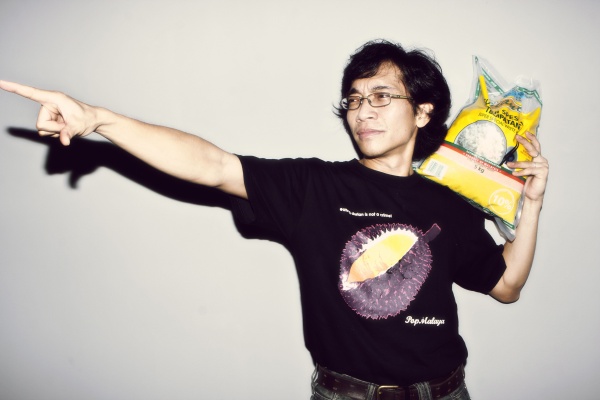
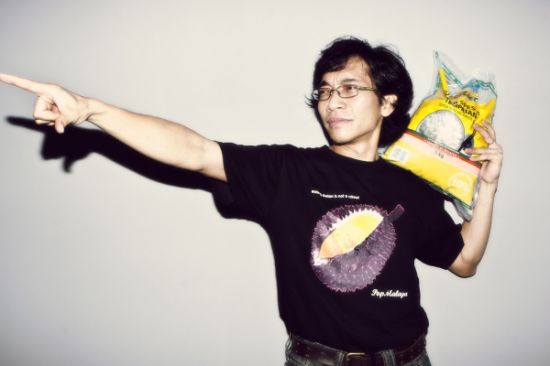
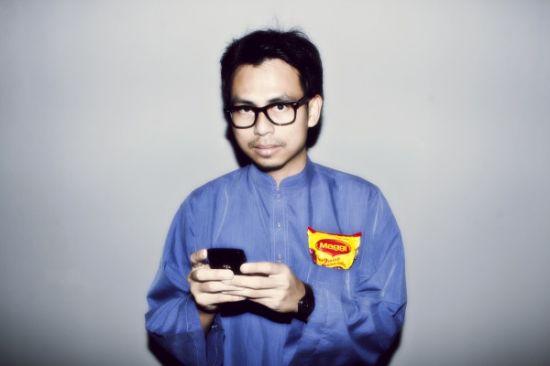

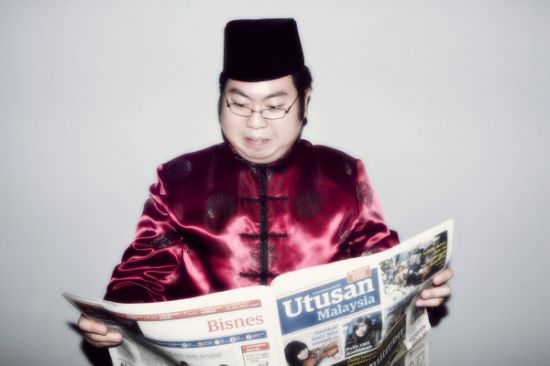

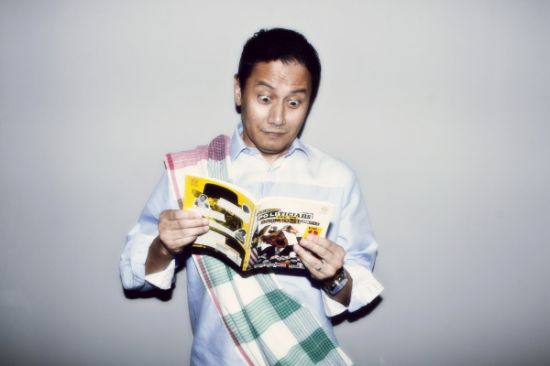




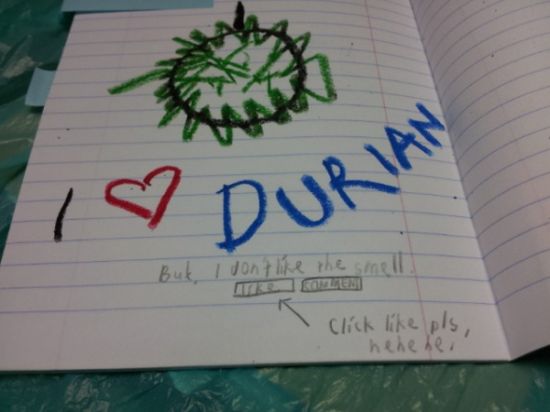
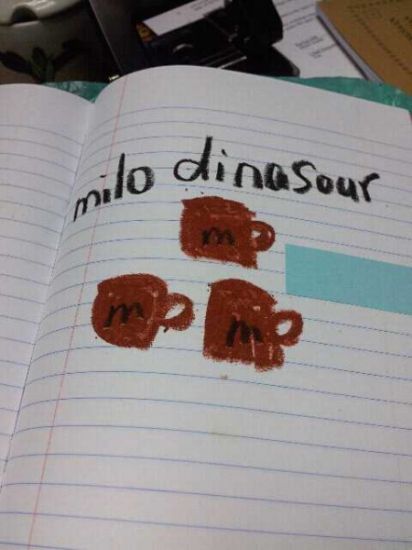

See Xien is a two-faced liar. Until now, he continues to enrich Barisan coffers by working for Petronas, robbing the rakyat. He has zero morals and zero credibility.
I wonder why Mr Thean See Xien has failed to come clean about his Barisan connections?
At the moment, he's currently serving as a senior legal executive with Petronas, quite possibly the most corrupt government-linked company. One thinks it would be hypocritical of him to talk about democracy and change when he has failed to live up to his own rhetoric.
If he's truly serious, he should resign his cushy position and stop helping Petronas to rape and plunder the land. –
Sorry Joyce, I hold a different view from your English language stuff. Mother tongue education is more efficient and this cannot be denied as the UNESCO has done a great deal of researches in this area. Read about it here http://www.unesco.org
Perhaps, you have to read the books of Dr Robert Phillipson about English language and get to know the linguistic right. Finally, the Esperanto language.
Nice!